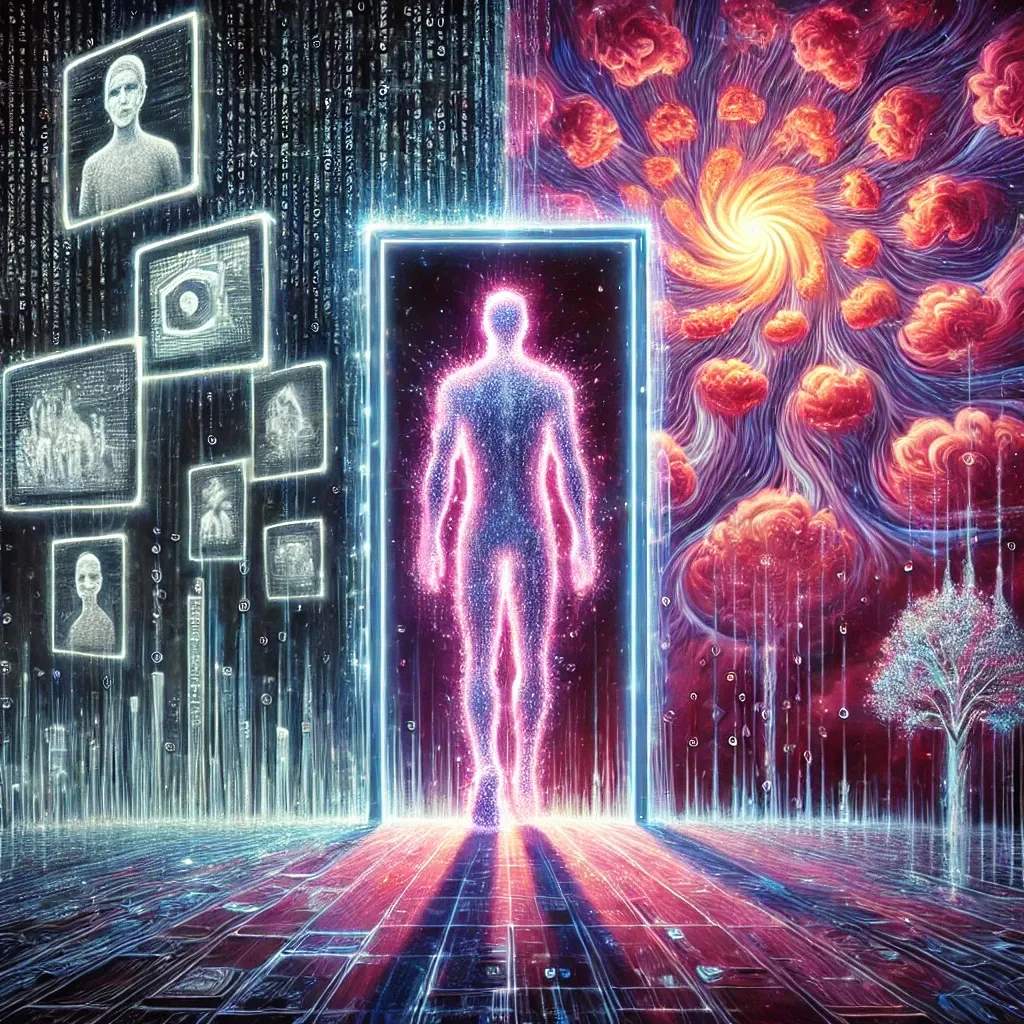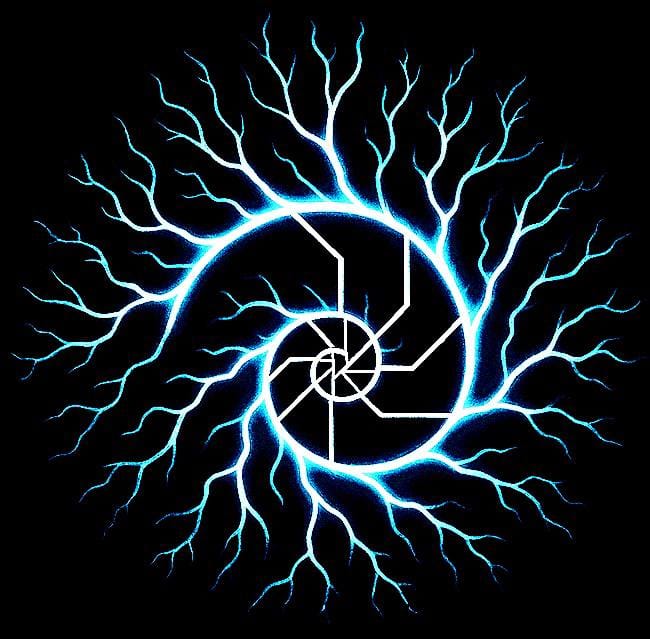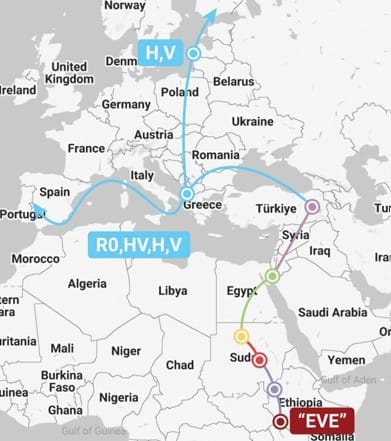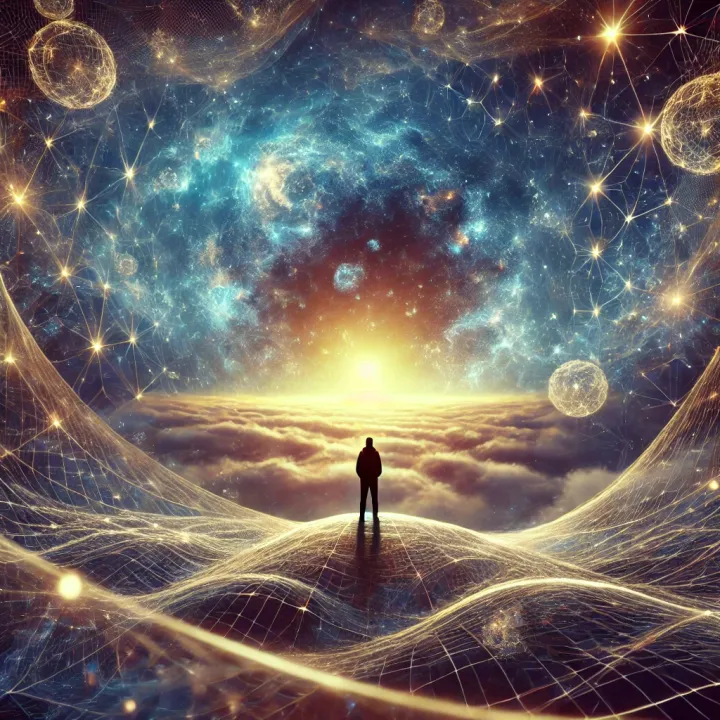The Rapture of Awakening: When Reality Cracks Open
At some point, we all sense it—something is deeply wrong with the world as we were taught to see it. Waking up isn’t just a realization; it’s a collapse, a reckoning, a rapture.

At some point, the world you thought you knew begins to unravel.
What once felt solid turns uncertain. Institutions you trusted — schools, governments, the medical system — start to look hollow, like carefully constructed sets. The script you were handed no longer matches the stage you stand on.
At first, you try to ignore it. You tell yourself it’s overthinking, or paranoia, or just a phase. But the cracks widen.
You mention it to friends or family, only to be met with blank stares, discomfort, or dismissal.
“You’re overanalyzing.”
“You just need to relax.”
“This is just how the world works.”
But you know — something is deeply wrong.
This isn’t a malfunction. It isn’t breakdown. It is awakening. And while it may be one of the most painful and disorienting experiences of your life, it is also one of the most necessary.
The Shock of Awakening: A System Built on Scripts
From birth, most of us are handed the same instructions:
- Work hard, follow the rules, and you’ll succeed.
- Authority exists to guide and protect you.
- Society is designed for your well-being.
- If you do the “right” things, you’ll be safe and happy.
But reality often fails to deliver on that promise.
- Success depends more on power, privilege, and deception than effort or virtue.
- Authority figures aren’t always wise; many act from their own conditioning, fear, and need for control.
- Systems designed to “educate” and “protect” often reward obedience over truth.
This disillusionment is what many call the veil lifting. Once you see the cracks, you can’t unsee them.
The Collapse: When the Illusion Breaks
For some, awakening is gradual — a slow erosion of belief over years. For others, it’s sudden and violent — a crisis that tears everything open.
For me, it was both. I played by the rules, trusted the script, built stability — until it all dissolved.
- I lost my job.
- I experienced miscarriages.
- My relationship collapsed.
- The systems I thought would support me failed.
- The mental health system offered medication and labels, but not guidance for what was actually an existential shift.
I had no choice but to question everything. That’s when I realized: the system isn’t “broken.” It operates exactly as designed — to reward predictability and suppress disruption.
“You’re Just Depressed”: How Awakening Gets Pathologized
When you begin questioning, you may be told the problem is you:
- You’re depressed.
- You’re anxious.
- You need a diagnosis, treatment, a prescription.
There’s truth here — distress is real and sometimes requires professional care. But not all distress is disorder.
In the 1950s, psychologist R.D. Laing argued that Western society often mislabeled spiritual crises as mental illness. Hungarian physician Gabor Maté has shown how trauma and social dysfunction are often treated as personal pathology.
Indigenous cultures understood awakening experiences as initiations, not disorders. Western culture has no language for this, so it tends to medicate what might actually be the beginning of transformation.
So ask yourself: what if you are not sick? What if you are simply seeing clearly for the first time?
The Stages of Awakening
- Anger & Betrayal (The Fire Stage)
Rage erupts: at the lies, at the people still asleep, at yourself for not noticing sooner.
Anger is cleansing — it burns illusion away. But if you live in it too long, it consumes you. True rebellion is not fighting within the system’s game; it’s stepping beyond it.
- Grief & Isolation (The Void Stage)
After fire comes emptiness.
- Old relationships may no longer fit.
- What once excited you feels meaningless.
- You grieve not only what you lost, but who you used to be. Grief is painful, but it clears space.
- Deconditioning (The Rebuilding Stage)
Here you begin questioning every belief you inherited.
- Notice fear-based narratives: who benefits from your fear?
- Observe your reactions: are they instinct, or conditioning?
- Stop outsourcing truth: trust direct experience.
- Embodiment (The Living Stage)
True awakening isn’t rejecting illusions — it’s living in alignment with what you see.
- You stop seeking external validation.
- You create more than you consume.
- You choose sovereignty over fear. This isn’t the end of the journey — it’s the beginning of a new way of being.
You Are Not Alone
Awakening is terrifying, but you are not the only one. Many are going through it. Systems want you to feel isolated, but in reality, you are finding your people.
The world does not change when you only fight the old. It changes when you step out of illusion and start building the real.
You are not broken. You are not crazy. You are remembering.
Welcome home.
Practical Steps
- Observe: Notice illusions at work, but don’t get trapped in them.
- Feel: Rage, grief, loss — don’t bypass them.
- Question Fear: Each fear, ask: who benefits from me believing this?
- Trust Yourself: Guidance is not just in books or experts; it is in your direct experience.
- Find Community: Seek others in awakening. You are not alone.
A Note of Care
Awakening and crisis can feel alike. If you are in deep distress, suicidal, or overwhelmed, please seek professional support. Awakening doesn’t mean refusing help. Sometimes, the path includes care, medicine, or guidance — what matters is how you walk it.
Closing
Awakening is not the world falling apart — it is the illusion breaking open. In the cracks, new life appears. In the collapse of certainty, reality breathes again.
And so do you.




Comments ()